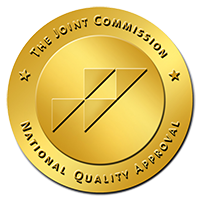“I am tired of feeling so tired.” “I am tired of looking in the mirror and not liking what I see.”
These are common to hear from patients, but when asked what their picture of health is they can’t provide a definition. They just know it isn’t how they feel or what they see when they look in the mirror. That begs the question, what in the world does it mean to be healthy? Is it running several miles per day, not eating certain foods, having 120/80 blood pressure, cholesterol in range, or getting eight hours of sleep?
The World Health Organization (WHO) defines health as, “...a state of complete physical, mental and social wellbeing and not merely the absence of disease or infirmity.” If true, this means that only those without disease that are crushing life with perfect physical fitness, mental health, and social connections are healthy. This appears to be more of a definition of perfect health, and would not even be achievable for most of us. Is this true? No, once again, old Mr. Webster hits closer to the mark. One of the definitions of health by Merriam-Webster is “the overall condition of someone’s body or mind.” This is a better frame of reference that includes all of us and leaves room to achieve a different state of health while providing a marker of where we are along a health continuum. It provides us the opportunity to think about where we are on that continuum, what changes we want to make, where we want to go, and what we need to do to get there. For some this will mean getting their cholesterol, glucose, and blood pressure checked regularly and bringing them under control. For some it will mean having their Annual Wellness Visit and screenings done. For others it will mean seeking help for stress, anxiety, and depression management. Still for others it will mean working on smoking cessation or sleep hygiene. None of us are likely to attain complete physical and mental health as defined by the WHO. However, we can all become healthier versions of ourselves by doing simple things.
We can increase our physical activity. This doesn’t necessarily mean working out. We can go for walks, we can garden, we can walk the golf course instead of driving the cart. We can eat a little better by increasing the number of fruits and vegetables we eat, decreasing consumption of processed foods, and limiting or eliminating tobacco and alcohol. We can improve our sleep quality by ceasing caffeine consumption earlier in the day, by putting down the smartphone or tablet an hour or two before bedtime, and going to bed a little earlier. We can improve our mental health by spending more quality time with our friends and family, seeking professional counseling, and by making time for self-care in our day. These simple things can go a long way to improve our overall health, changing what we see in the mirror, and improving our fatigue.
The reality is our health is important regardless of the definition. Someone practicing these simple things is more likely to have better overall health and add quality to their years than those that focus on just one area.
To schedule a Lifestyle Medicine visit with Dr. Shelmadine, call 308-762-7244.



